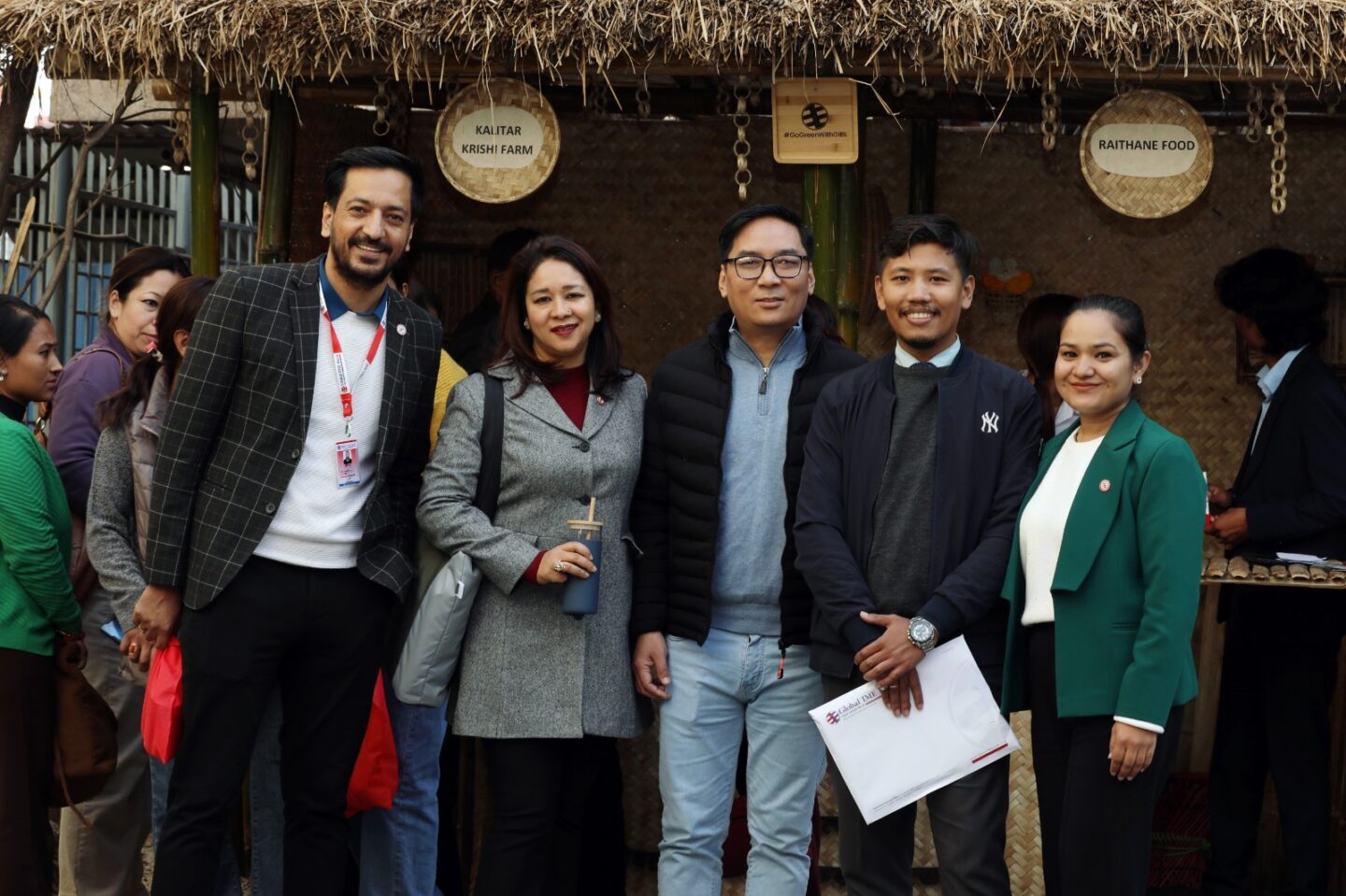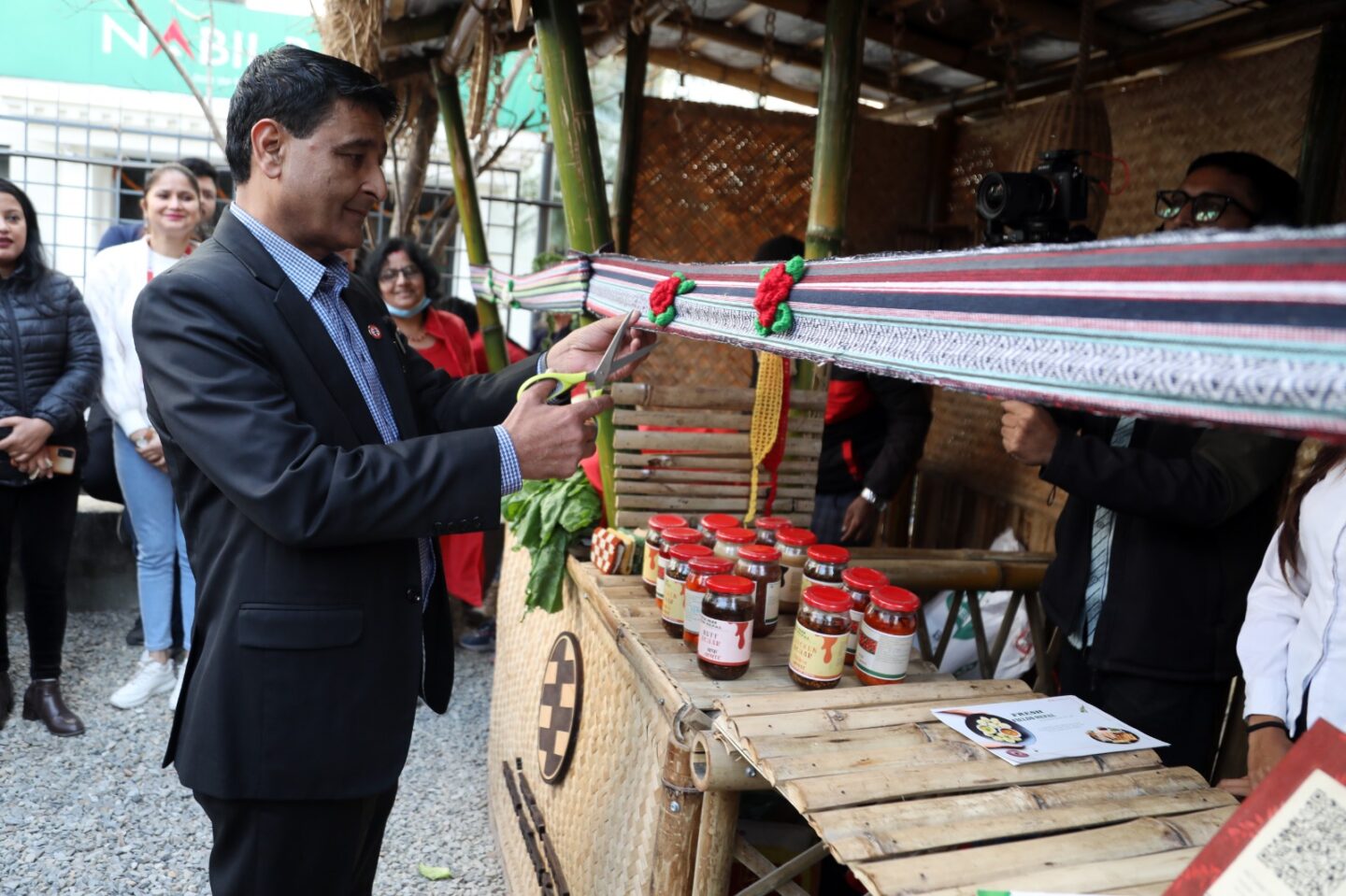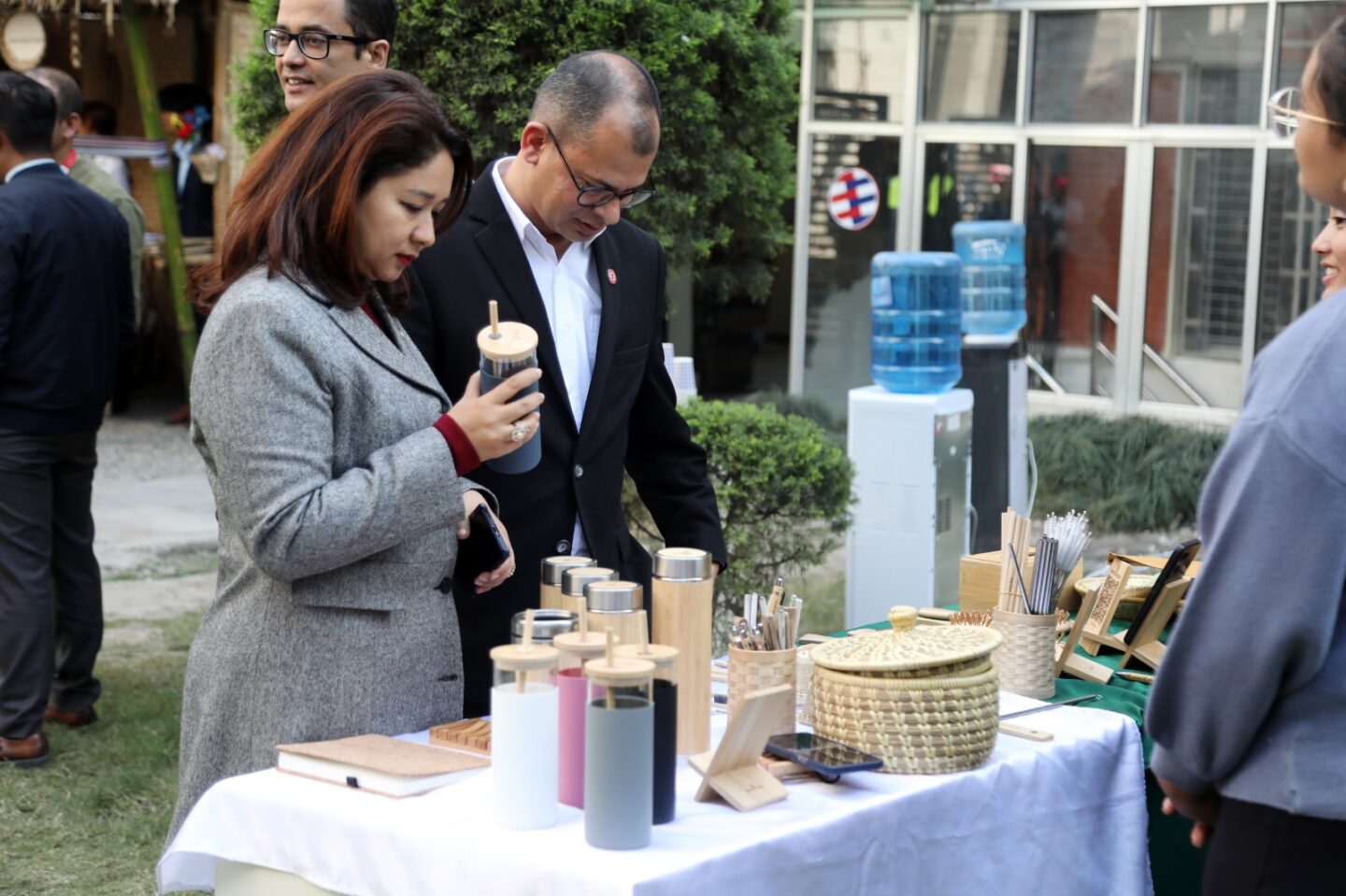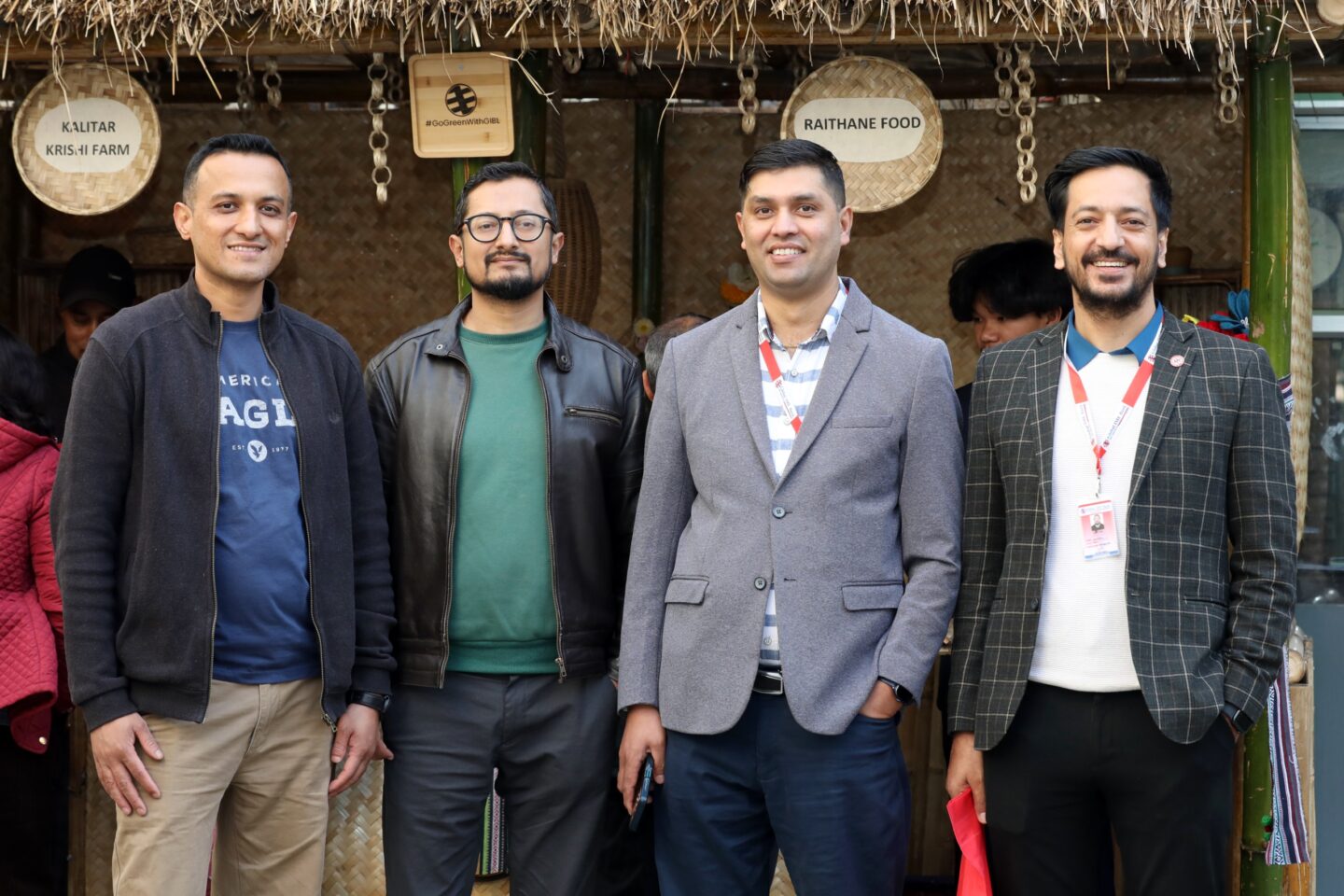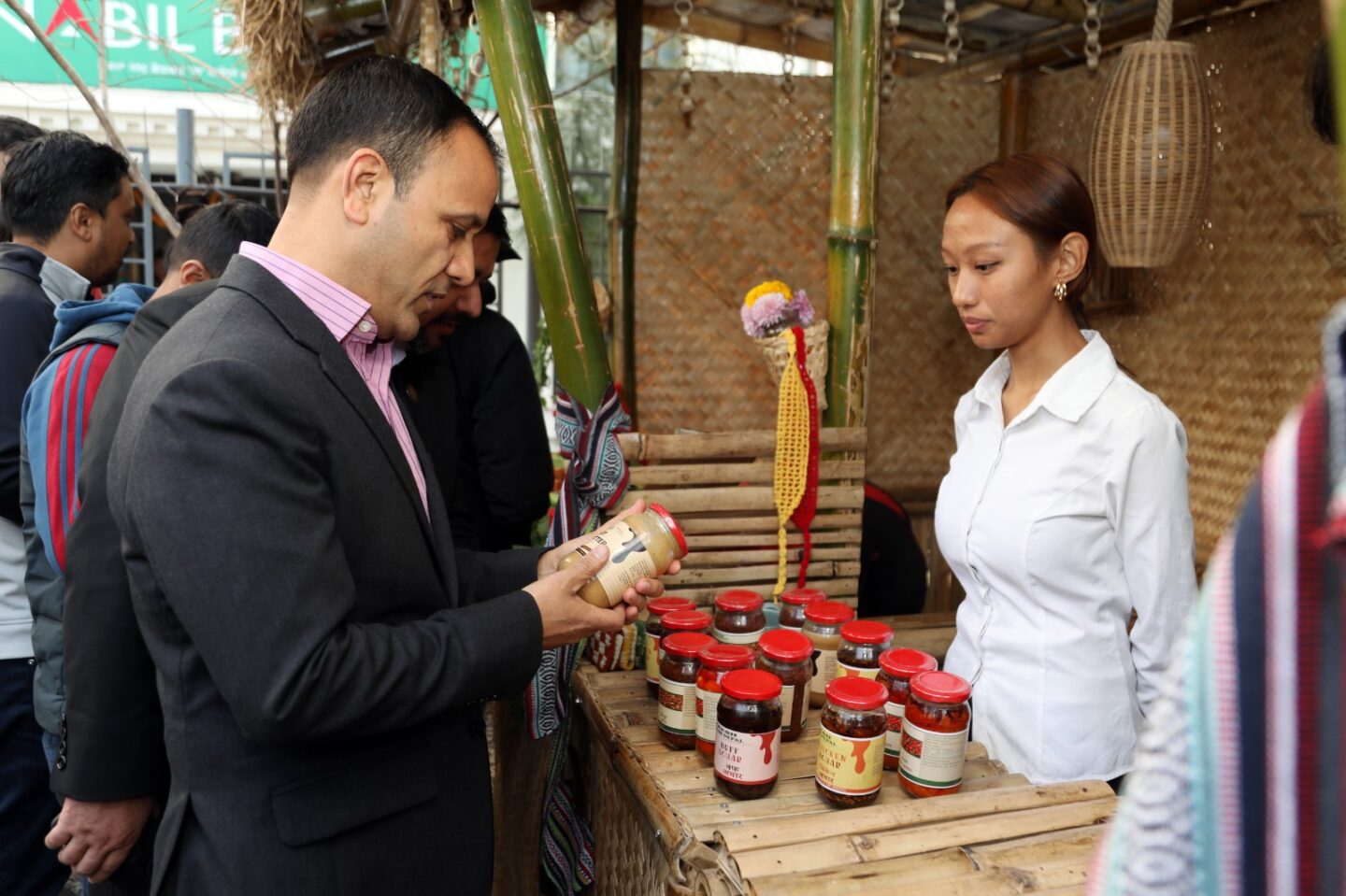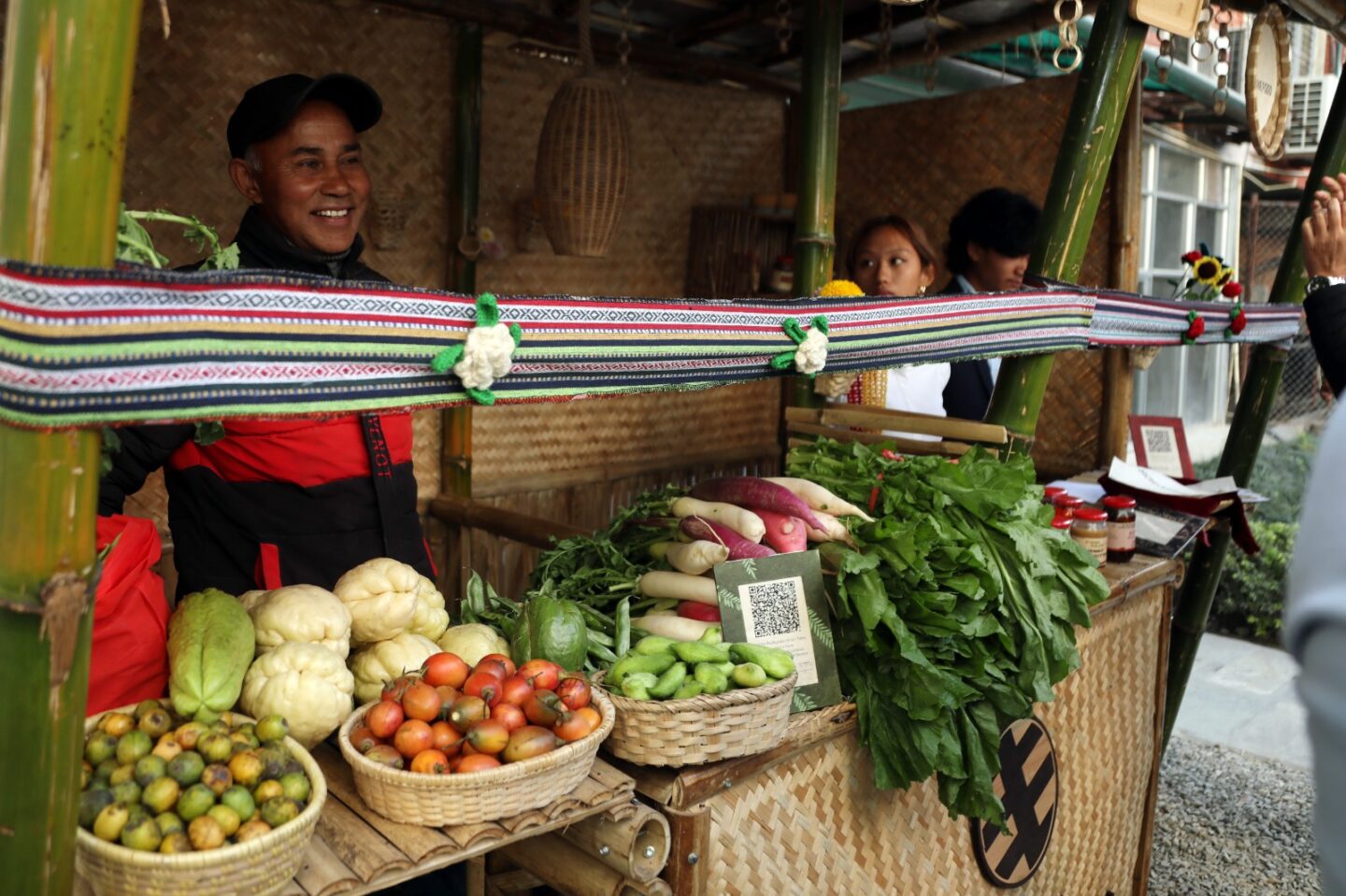
Global IME Bank, Nepal’s largest commercial bank, has embarked on a meaningful and innovative initiative by organizing a weekly Hat Bazar campaign at its head office premises in Kamaladi, Kathmandu. What sets this campaign apart is not just its focus on market access of local, safe food and sustainable ventures, but its strong alignment with sustainability and eco-consciousness. The market is uniquely constructed using biodegradable materials, emphasizing the bank’s commitment to environmental responsibility. This green approach aligns with the growing global movement towards sustainable development and sets an example for how corporate institutions can lead by example in integrating environmental values into their organizations.
The Hat Bazar serves as a dedicated marketplace for safe food producers and sustainable ventures; particularly small and medium enterprises (M/SMEs) who often struggle to access mainstream markets. These businesses typically face stiff competition from non-organic and non-sustainable producers, many of whom dominate retail spaces with the advantage of economies of scale. Global IME Bank’s initiative aims to address this imbalance by creating a niche market where authenticity, sustainability, and food safety are prioritized. Through this weekly event, the bank is facilitating direct interaction between ethical producers and conscious consumers, fostering transparency and trust that are essential for a resilient green economy.
Beyond external market support, the campaign also reflects the bank’s internal commitment to the wellbeing of its own staff. By bringing safe, locally-sourced food options directly to the workplace, Global IME Bank is encouraging healthier lifestyles and promoting awareness among its employees about the benefits of consuming organic and sustainably produced goods. This dual-purpose approach is supporting both staff welfare and market access for green ventures makes the campaign a unique model in corporate sustainability.
To ensure a smooth and organized execution of the campaign, Global IME Bank’s SME/Retail and Agriculture Banking Unit prepares an annual roster of eligible safe and sustainable ventures within the bank system. These selected producers are then invited to participate in the Hat Bazar during their allocated week, typically every Friday. This structured, rotational model not only provides equal opportunity for a range of vendors but also ensures that consumers are exposed to a diverse selection of sustainable goods each week. By doing this initiative, Global IME Bank is not only promoting green entrepreneurship but is also contributing to the development of a more inclusive and sustainable economic ecosystem in Nepal. Following catagories has been participating in weekly Hatbazar.
- Safe and local agri-food items
- Dairy items
- Locally processed food items
- Recycled products
- Handicrafts
- Handmade jewelry by women’s groups
- Fresh fruits
- Traditional and native foods from the Karnali and remote region
“This initiative is very helpful for farmers who do not have access to markets and are often forced to sell their products at very low prices. By participating in the Hatbazar, we were able to sell directly to consumers at better rates, even though it was still lower than the standard market price.”
A farmer from Bethanchwok Kavrepalanchwok:
Impact Highlights:
- Market Access for Remote Farmers: The Hatbazar has bridged the market gap for farmers from distant areas, offering them a valuable alternative to traditional middlemen.
- Entrepreneurial Encouragement: M/SMEs have shown consistent interest in rejoining the market, indicating strong engagement and economic benefit.
- Women’s Empowerment: Women-led enterprises, particularly in jewelry and handicrafts, have received positive exposure and support.
- Health & Convenience: Bank staff and office employees appreciated having access to safe and healthy food items conveniently located near their workplace.
- Promotion of Local Identity: Native food products from Karnali have gained visibility and appreciation, contributing to local cultural and economic resilience.
To support MSMEs and sustainable ventures, the Bank envisions expanding these initiatives to the provincial and branch levels.
